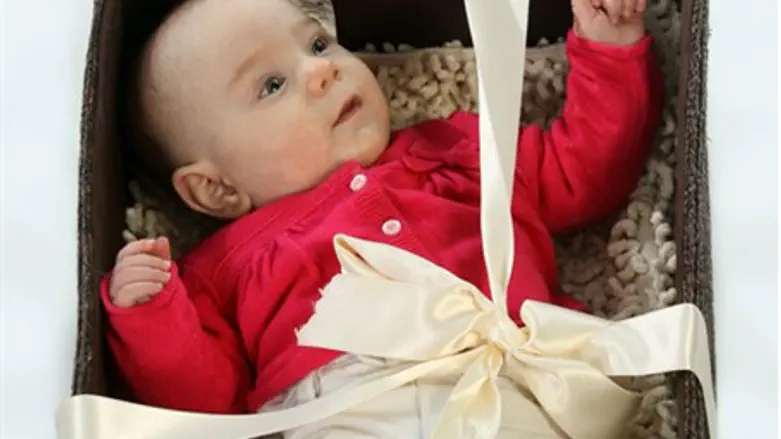
A fictional Palestinian Authority leader’s peace proposal won more acceptance by Israeli Jews when he was shown with a baby face, according to a new study by Hebrew University Associate Professor Dr. Ifat Moaz.
Prof. Maoz provided Jewish-Israeli respondents with a fictional news item containing a peace proposal and a fictional Palestinian leader's photograph. The photograph was manipulated to appear as either baby-faced or mature by making a 15 percent change in the size of eyes and lips. Respondents were then asked to evaluate the peace offer and rate the trustworthiness of the politician who offered it.
Although both images were based on the same original, the baby-faced politician was judged as more trustworthy and his peace proposal received greater support than the same offer from the mature-faced politician.
"People generally associate a baby face with attributes of honesty, openness and acceptance," explains Prof. Maoz, "and once you trust your adversary, you have a greater willingness to reach a compromise."
The study suggests that in situations of protracted conflict, the face of the enemy matters. Visual information conveying subtle, undetected changes in facial physiognomy were powerful enough to influence perceivers' judgments of the opponent-politician and of the proposal he presented for resolving the conflict.
Previous studies have shown that people with relatively babyish facial characteristics, such as proportionally large eyes, a round chin, and thick pudgy lips, are perceived as kinder, warmer, more honest and more trustworthy than mature-faced people with small eyes, square jaws, and thin lips. Baby-faced people also produce more agreement with their positions.
The Hebrew University research is the first study that systematically examines the impact of facial features of politicians from the opposing side in a conflict.
The influences of the Internet and visuals have made the research even more relevant in today’s political climate.
The study also gauged the extent to which manipulating facial features can affect populations with different have pre-existing attitudes, overcome hawks' resistance to change and increase their perceptions of opponents as trustworthy. While individuals with hawkish positions held markedly negative initial attitudes towards peace and the opponents in a conflict – attitudes that tend to be rigid and resistant to change – they surprisingly showed a more significant response than dovish respondents to differences in facial maturity.
Maoz adds that there are situations in which a baby-face is not advantageous: "Although features of this type can lend politicians an aura of sincerity, openness and receptiveness, at the same time they can communicate a lack of assertiveness. So people tend to prefer baby-faced politicians as long they represent the opposing side, while on their own side they prefer representatives who look like they know how to stand their ground."